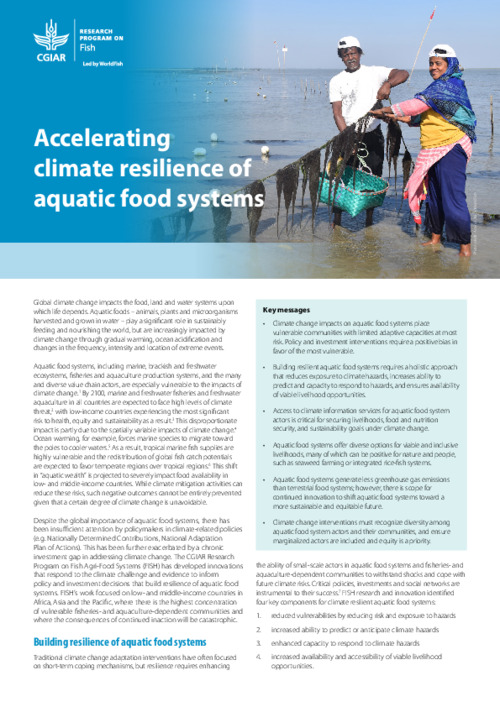Accelerating climate resilience of aquatic food systems

Climate change impacts on aquatic food systems place vulnerable communities with limited adaptive capacities at most risk. Policy and investment interventions require a positive bias in favor of the most vulnerable.
Building resilient aquatic food systems requires a holistic approach that reduces exposure to climate hazards, increases ability to predict and capacity to respond to hazards, and ensures availability of viable livelihood opportunities.
Access to climate information services for aquatic food system actors is critical for securing livelihoods, food and nutrition security, and sustainability goals under climate change.
Aquatic food systems offer diverse options for viable and inclusive livelihoods, many of which can be positive for nature and people, such as seaweed farming or integrated rice-fish systems.
Aquatic food systems generate less greenhouse gas emissions than terrestrial food systems; however, there is scope for continued innovation to shift aquatic food systems toward a more sustainable and equitable future.
Climate change interventions must recognize diversity among aquatic food system actors and their communities, and ensure marginalized actors are included and equity is a priority.
Permalink
Date Available
Type
Publisher
Copyright
CC-BY-NC-4.0
Research Themes
Topics
Language